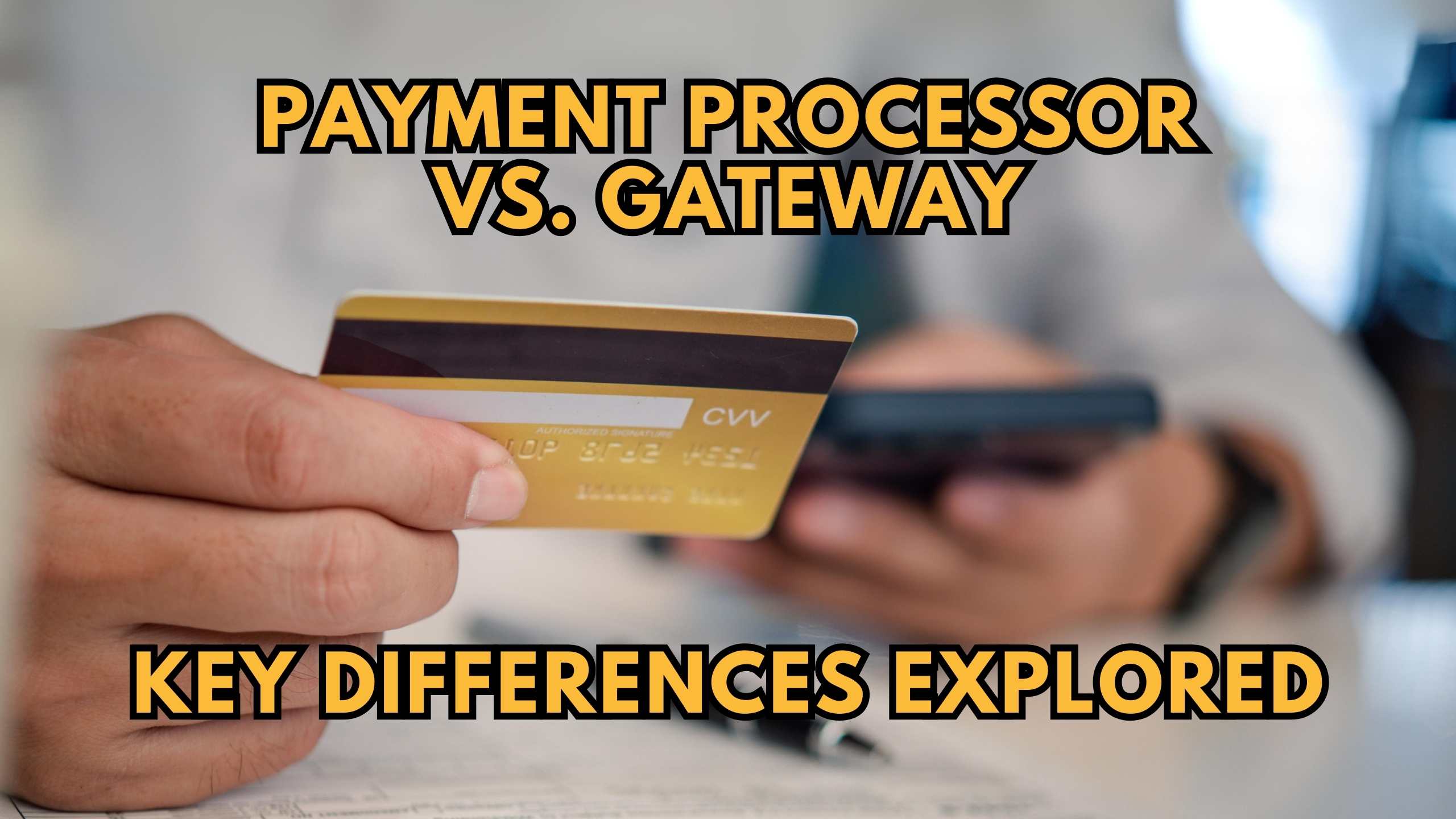Payment Processor vs. Gateway: Key Differences Explored


Payment Processor vs. Gateway: Key Differences Explored
In the realm of online payments, understanding the distinctions between payment processors and payment gateways is crucial for businesses seeking to optimize their payment infrastructure. Let’s delve into the key differences between these two components of online transactions and how they contribute to seamless payment processing.
Payment Processor: Facilitating Transactions
A payment processor is a third-party service that handles the authorization and processing of online transactions between buyers and sellers. It acts as the intermediary between the merchant’s bank and the customer’s bank, securely transmitting payment data and facilitating fund transfers. Payment processors play a vital role in verifying the validity of transactions, detecting fraudulent activities, and ensuring the smooth flow of funds from the buyer to the seller.
Payment Gateway: Enabling Communication
On the other hand, a payment gateway is a software application that facilitates the communication between the merchant’s website and the payment processor. It encrypts sensitive payment information, such as credit card details, and securely transmits it to the payment processor for authorization and processing. Payment gateways are responsible for ensuring the security and integrity of online transactions, protecting sensitive data from unauthorized access and fraud.
Key Differences
While payment processors and payment gateways both play essential roles in online payment processing, they serve distinct functions within the payment ecosystem. Payment processors focus on transaction authorization, settlement, and fund transfer, whereas payment gateways specialize in securely transmitting payment data between the merchant’s website and the payment processor. Understanding these differences is crucial for businesses seeking to optimize their payment infrastructure and enhance the security and efficiency of online transactions.
Relevant SaaS Products:
- Stripe: Simplify online payment processing with Stripe’s powerful suite of tools for payment acceptance, fraud detection, and subscription management.
- PayPal: Streamline your payment infrastructure with PayPal’s comprehensive payment processing solutions, including secure checkout, invoicing, and recurring billing.
- Square: Transform your business with Square’s intuitive payment processing platform, offering seamless integration, real-time analytics, and omnichannel capabilities.
- Authorize.Net: Enhance the security and reliability of your online payments with Authorize.Net’s trusted payment gateway services, featuring advanced fraud prevention and customizable checkout options.
- Braintree: Optimize your payment infrastructure with Braintree’s flexible payment gateway solutions, supporting global payment methods, recurring billing, and mobile payments.
Conclusion
In conclusion, understanding the differences between payment processors and payment gateways is essential for businesses seeking to streamline their online payment processing. By leveraging the unique capabilities of each component, businesses can enhance the security, efficiency, and reliability of their payment infrastructure, ultimately providing a seamless payment experience for customers.
Streamline Your Payment Infrastructure with Subscribed.fyi!
Ready to optimize your payment infrastructure? Subscribed.fyi offers an all-in-one solution for managing your SaaS stack, helping you unlock exclusive deals on essential payment processing tools and streamline your subscription management. Sign up for free and start optimizing your payment processing with Subscribed.fyi today!
Relevant Links:








